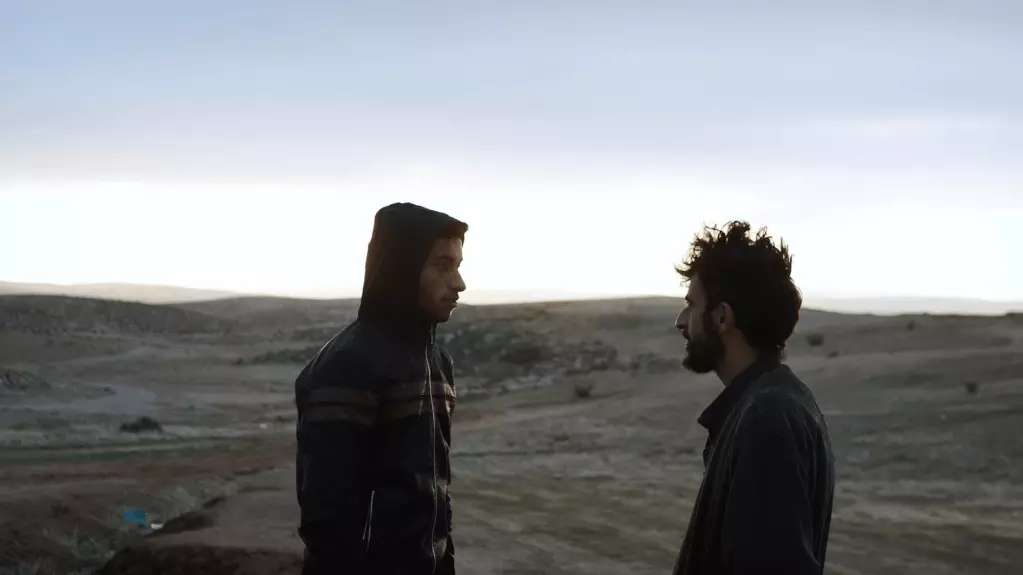As audiences sift through the latest offerings in cinema, several films have emerged that not only entertain but also provoke deep contemplation on pressing social issues. The recent releases span a range of genres, from powerful documentaries to imaginative narratives, all rich with themes that resonate in our contemporary landscape. This article delves into select films that are now gaining traction, where activism and introspection intersect in cinematic storytelling.
One of the most talked-about films making its debut is “No Other Land,” an Academy Award-nominated documentary that opens this week at Film Forum in New York and is set for broader distribution soon after. What sets this film apart is its collaborative foundation, crafted by a diverse collective of Palestinian and Israeli filmmakers—Basel Adra, Hamdan Ballal, Yuval Abraham, and Rachel Szor—who focus on the poignant difficulties experienced by marginalized communities during turbulent periods. Their work doesn’t just document events; it serves as an historical exposition on the deep-rooted causes of discord between Israelis and Palestinians.
The film shines a light specifically on Masafer Yatta, a beleaguered region featuring twenty ancient Palestinian villages under threat of expulsion. Over five years of dedicated footage, filmmaker Basel Adra chronicles the systematic demolitions of homes, schools, and resources, capturing the uprising against the Israeli military’s classification of the area as a training zone. Through a process of empathetic storytelling, the film transforms individual struggles into a collective narrative of resilience, showing the human cost of conflict through the lens of those directly impacted.
It is this personal and intimate approach that has resonated with both critics and festival audiences alike, garnering a 100% rating on Rotten Tomatoes. Notably, the film was produced against a backdrop of ongoing violence between Israel and Hamas, which adds layers of urgency and relevance to its content. Through the lens of friendship between Adra and Israeli journalist Yuval Abraham, the documentary underscores the possibility of alliances across divides, showcasing a shared humanity amidst a fractured narrative.
In stark contrast, Sam and Andy Zuchero’s “Love Me” ventures into a speculative realm, blending themes of love and technology in a distant post-apocalyptic setting. Featuring performances from Kristen Stewart and Steven Yeun, the narrative poses unique questions about identity and connection long after humanity has vanished. The creative use of various filmmaking techniques—from live-action sequences to animatronics—allows the film to create a surreal yet grounded experience, prompting audiences to reflect on what it means to be human and to love.
The film’s exploration of connection—sparked in an atmosphere where human existence has all but evaporated—pulls themes of relevance from the digital age into a broader cosmic context, challenging viewers to reflect on their own identities. Set against the backdrop of virtual reality and isolation, “Love Me” encourages contemplation on the significance of memory and legacy, making it a thought-provoking addition to the cinematic lexicon.
In a different corner of the cinematic landscape, “Marcello Mio” by Christophe Martin explores themes of identity through familial bonds and personal reflection. Starring Chiara Mastroianni and Catherine Deneuve, the film weaves a narrative where Chiara embodies the spirit of her father, the legendary Marcello Mastroianni. This rich tapestry of impersonation and legacy poses fascinating questions about the roles we inherit and the identities we create for ourselves.
The film’s success at prestigious festivals such as Cannes speaks to its ability to resonate with audiences on a deeper level, using Chiara’s transformation as a vehicle for exploring the complexities of self-discovery. As Chiara navigates her summer of chaos, the line between self and other blurs, inviting the viewer to consider how much of ourselves is shaped by those who came before us.
In this rich tapestry of contemporary cinema, we find films that do more than simply entertain; they dissect the intricacies of human relationships, the impact of geopolitical strife, and the quest for identity in a rapidly changing world. “No Other Land,” “Love Me,” and “Marcello Mio” are but a few examples of how filmmakers today utilize their craft to prompt reflection on profound and pressing questions that shape our collective experience.
As these films open in theaters, they invite viewers to engage, reflect, and possibly transcend conventional narratives. By bridging personal stories with broader societal issues, cinema remains a potent medium for understanding the world around us—one frame at a time.

